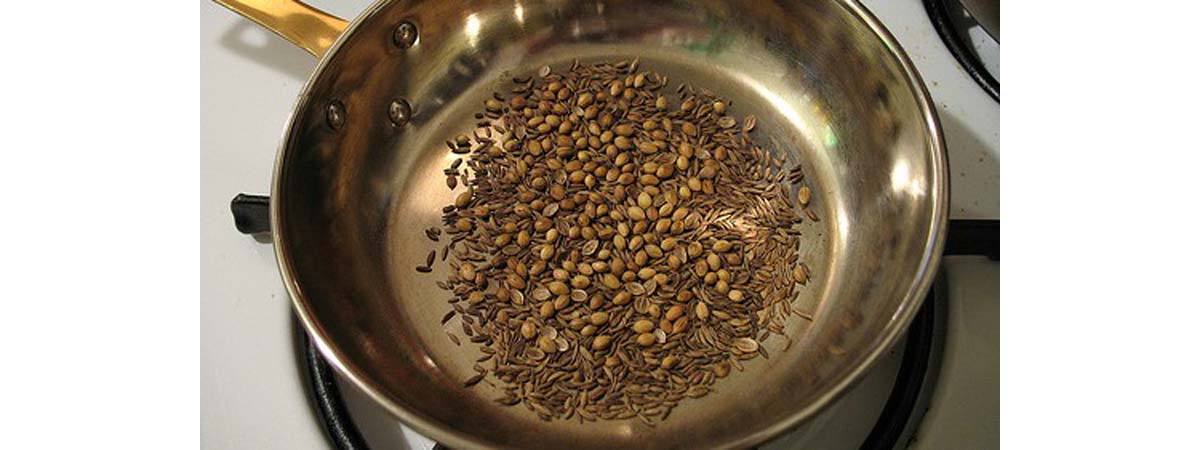Table of Contents
Most of the scientific research into the potential health benefits of black cumin is in the pre-clinical stage, but scientists have confirmed these possible uses of the herb:

- Weight control. Scientists at the National University of Malaysia have found that black cumin oil slows the multiplication of a kind of white blood cell known as a macrophage in belly fat.Since macrophages are associated with inflammation that packs fluid into the tissues that hold belly fat in place, black cumin oil may reduce the "water weight" that adds to fat mass around the waist.
- Diabetes-related brain disease. Many people who have poorly controlled diabetes for 20 years or more begin to develop literal holes in the brain, especially around the cerebellar arteries. Tests with laboratory animals have found that black cumin oil slows down the pro-oxidant process that causes destruction of brain tissue.
- Kidney stones. When black cumin seeds are soaked in grain alcohol, the resulting extract may slow down the formation of the kind of kidney stones that are caused by the accumulation of calcium oxalate in the kidney. This is the kind of stone that is aggravated by eating too much spinach or certain leafy greens.
- Liver cancer. Black cumin is already used in clinical treatment of liver cancer in Sri Lanka, although it is typically combined with two other herbs, sarsaparilla (Smilax glabra) and kshirini (Hemidesmus indicus). Scientists believe that the combination of herbs helps reduce inflammation, keeping tumors in the liver from spreading through the liver and to other parts of the body, and helping maintain the flow of blood, oxygen, and nutrients in the liver.
- Blood clotting issues. In laboratory tests with rabbits, black cumin extracts increased platelet counts, helping the blood clot more readily. While this effect, if proven in humans, would be helpful to cancer patients in recovery after chemotherapy or radiation treatment who have low platelet counts, it would counteract the anti-platelet drugs commonly prescribed after heart attack or stroke.
- High triglycerides in type 2 diabetes. One of the most common complications of poorly controlled type 2 diabetes is high triglycerides, which the liver creates from excess blood glucose. Even when diabetics have low cholesterol, high triglycerides may cause greatly increased risk of heart attack of stroke. A clinical trial in India found that taking 2 grams of black cumin seeds every day for 12 weeks greatly reduced triglycerides in the type 2 diabetics volunteering for the study, suggesting that black cumin offers cardiovascular benefits for diabetics that statin drugs do not.
- Allergies and asthma. Laboratory studies have found that black cumin seed extracts stop the release of leukotrienes that cause the inflammation that leads to allergies (including allergies in the digestive tract that cause diarrhea) and asthma.
So do you need to stock up on kali jira to avail yourself of these potential health benefits of black cumin? Do you need to get into a detailed discussion at the local Indian or Pakistani market about which kind of "black cumin" you buy to make your korma or biryani? Do you need to give up your favorite East Indian vegetarian dishes and start eating more meat and rice dishes traditionally made with the "black" black cumin?
As it turns out, you don't. Both the black cumin used in Bengali cooking and the black cumin used in Bengali cooking hold the same tremendous potential for improving health. It is premature to recommend black cumin as a "drug" for treating disease, but there is a high likelihood that including either form of "black cumin" in your diet in Indian, Kashmiri, or Pakistani dishes at least twice a week well offer protective benefits against a plethora of diseases.
- Harzallah HJ, Grayaa R, Kharoubi W, Maaloul A, Hammami M, Mahjoub T. Thymoquinone, the Nigella sativa bioactive compound, prevents circulatory oxidative stress caused by 1,2-dimethylhydrazine in erythrocyte during colon postinitiation carcinogenesis. Oxid Med Cell Longev. 2012. 012:854065. doi: 10.1155/2012/854065. Epub 2012 Apr 18. PMID: 22570743 [PubMed - indexed for MEDLINE]
- Mat MC, Mohamed AS, Hamid SS. Primary human monocyte differentiation regulated by Nigella sativa pressed oil. Lipids Health Dis. 2011 Nov 21.10:216. doi: 10.1186/1476-511X-10-216.PMID: 22104447 [PubMed - indexed for MEDLINE]
- Photo courtesy of tinybanquet on Flickr: www.flickr.com/photos/tinybanquet/403442840
- Photo courtesy of Dharmadhyaksha: commons.wikimedia.org/wiki/User:Dharmadhyaksha

